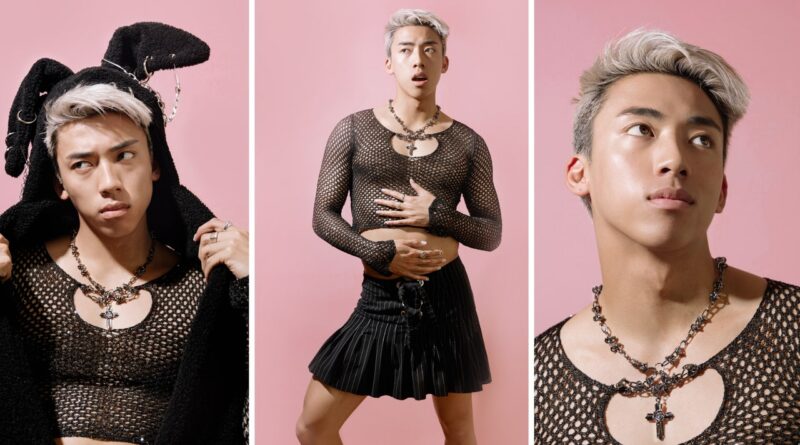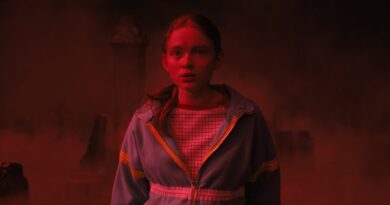Mad Tsai Is Writing Queer Pop Anthems — and Rewriting “American Coming-of-Age”
“Stacy’s Brother” and “In My Head” are the first two singles on Tsai’s forthcoming EP, Teenage Nightmare, which will interrogate idealistic media narratives around romance, coming-of-age, and the “American dream,” he explains. These ideas stem from the fact that, in adolescence, he would “hyperfixate” on teen dramas like Perks of Being a Wallflower, Edge of Seventeen, and Breakfast Club, and wonder why his own upbringing in Huntington Beach, California, wasn’t nearly as exciting. “I remember thinking, ‘How come my life does not look like that?’” he recalls. “[Watching those movies growing up] I just remember feeling othered. […] I felt like my story was not being told in a proper way. I felt like I didn’t really have a voice or any autonomy in how these stories were playing out.”
That’s partly why it was so important for Tsai to get the rights to sample the song from Avatar, his favorite show and “my first view of representation for Asians,” he says, for “In My Head.” The song also took on special significance considering it became his late grandmother’s favorite. He would play it for her in the hospital while she was getting treatment for her cancer, before she passed away last December. “It’s a very near and dear song to my heart,” he says.
“In My Head” is also a critical part of Teenage Nightmare’s overall message that “the American dream and American coming-of-age isn’t real,” Tsai explains. As a high schooler who didn’t have many friends and had his nose in the books, aspiring to be valedictorian, he spent so much idealizing what his life was supposed to look like, that he never really stopped to appreciate it for what it was. He’s written about feeling like a “background character” in his own life on his 2020 song “That Friend,” but with his new material, he’s giving himself a chance to see himself in a new role. “[Teenage Nightmare] is me going back in time to rewrite some of my story, to place myself in this main character role and live out some of my fantasies, while also deciding for myself what I want in life.”
“I think all my music in a way is part of me healing my inner child,” Tsai continues, hoping that showing his own journey can help others. “I needed that shake on the shoulder, just that jolt of [someone else telling me], ‘You will survive, you will live on another day, and it’ll be fine,” he says of his younger self. Then he grins. “I think the fun thing about having a shit coming-of-age is you get to tell other people who are also having a shit coming-of-age all the advice that you wish you heard.”
Although Tsai claims that his upbringing wasn’t fun, he’s a natural storyteller who is able to make any anecdote funny. When he describes the group piano lessons he received as a kid, he goes on a tangent about how his unconcerned teacher never taught him how to read sheet music and chain-smoked cigarettes; “He’d be like, ‘Yeah, just practice,’ and then go outside for five minutes and come back smelling like smoke,” he laughs. Then when describing his early musical education based on watching musicals like Phantom of the Opera and Annie, he has to pause to talk about the Enya CD that he’d listen to every night. “Oh my god, I love Enya,” he gushes. “I aspire to be her and live in a castle in the middle of nowhere… She’s a badass.”




